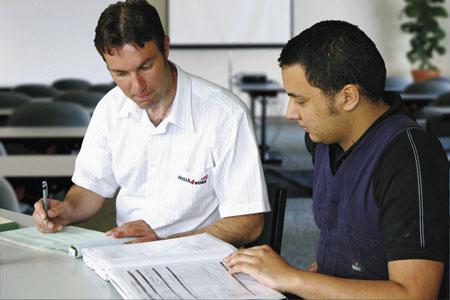| HOW long do you continue to invest money, time and energy into training your technicians? I speak to dozens of engineering and maintenance organisations throughout New Zealand every year and the answer I consistently find is that any real commitment to formal training finishes when the apprenticeship ends and the level 4 trade certificates are awarded. I accept that not every tradesman wants to progress to become a bachelor of engineering but many would like the chance to take their knowledge to the next level and are not given that opportunity. I believe there are several reasons why we train our technicians only for the first three or four of the forty or so years they are in the workplace. They include: It has simply become ‘the norm’ – for employers and employees. Trade certification is considered the only requirement, rather than thought of as merely the starting point for a structured progression of qualifications throughout the career of a tradesman. There is considerable confusion in industry about qualifications. The NZQA framework is full to bursting with certificates and diplomas from a plethora of providers. This makes it a minefield to negotiate when trying to find the relevant qualifications for a particular industry sector. Until recently the natural progression after trade certification for national qualifications has not been promoted because it was in some trades an unnecessarily complicated and difficult qualification to achieve. This leads us to the situation we find ourselves in today where we have an ageing workforce doing things the way they always have done, simply because nobody has told them a better way. We all know that as a nation we must become more productive to stay in the game and that also holds true as an organisation. We are told constantly that if we aren’t moving forward and our competitors are, then we are moving backwards. But remember, we can only move forward by embracing new techniques and technologies. In the ever evolving world of maintenance we need to constantly be looking at more efficient ways to operate. That doesn’t mean simply cutting the budget to save money; we must give our tradesmen the knowledge they need to work smarter. Recently the engineering ITO Competenz released a new version of the level 5 advanced trade qualification for mechanical engineering. This includes a strand in General and Maintenance Engineering and is a qualification that is flexible in its implementation. Also, there are courses available linked to three brand-new unit standards that have been developed to train maintenance technicians of any trade in some of the vital skills they need to take them to the next level. The benefits of training staff go far beyond the inevitable increase in reliability and productivity. It has been well proven that training staff increases job satisfaction and motivation, increases capacity to adopt new technologies and methods and reduces employee turnover. |
There is considerable work going on to help ease the confusion around qualification pathways and to ensure the qualifications that are available are relevant and attainable. What we must now do is change our attitude towards training our technicians. Let’s not accept it as the norm to merely put them through an apprenticeship when they are fresh out of school. We need to adopt an approach of continuous improvement towards training our tradesmen to enable them to keep our organisations and our country at world class levels. The qualifications and training are more relevant and available now than they have been for some years. Phil Hurford is the manager of the Skills4Work Maintenance Excellence programme. |
When should we stop training our maintenance technicians?
General
Tuesday, 01 March 2011






